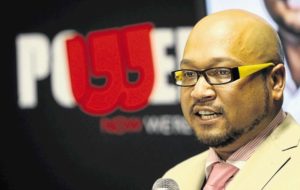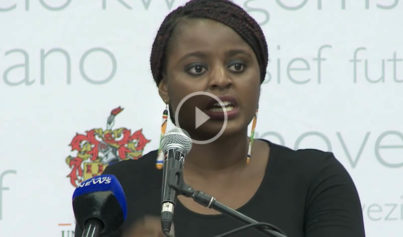
Eusebius McKaiser Speaking at the eThekwini Municipality’s social cohesion conference
Speaking at the eThekwini Municipality’s social cohesion conference yesterday, political analysts Somadoda Fikeni and Eusebius McKaiser, and author advocate Christine Qunta, said social and economic inequalities left South Africa a deeply divided nation.
It was impossible, McKaiser said, to deal with racial equality without acknowledging that the inequalities of the past continued to exist today — and that Black South Africans still bore the brunt of these inequalities. He was skeptical about the concept of “non-racialism.”
Fikeni said the Rainbow Nation ideal punted post-1994 was one of the reasons South Africa is as divided as it is.
“We did not say we are striving to be a Rainbow Nation; we said that we are now a Rainbow Nation. It’s like going to a [football] match and saying that you’ve already won [so] there’s no need to perform,” he said.
Qunta said there was a huge economic and social discrepancy between Blacks and whites, and the tension caused by this power imbalance often burst into the open in the form of racist comments.
“Those who were previously oppressed are trying to unshackle themselves from the structural effects of such oppression and those who benefited from the oppression of the majority are trying to maintain the institutions that enabled their dominance. There is, in fact, a subterranean war raging which occasionally bursts out in the open.
“It is often thought social cohesion or the removal of racism is about individual changes of attitudes and minds. This is not the case. It is essentially a question of power. In turn, this determines the attitudes and actions of those who have it and those who don’t,” said Qunta.
Because of this, she did not feel true unity was possible, unless things changed.
Read more here.


